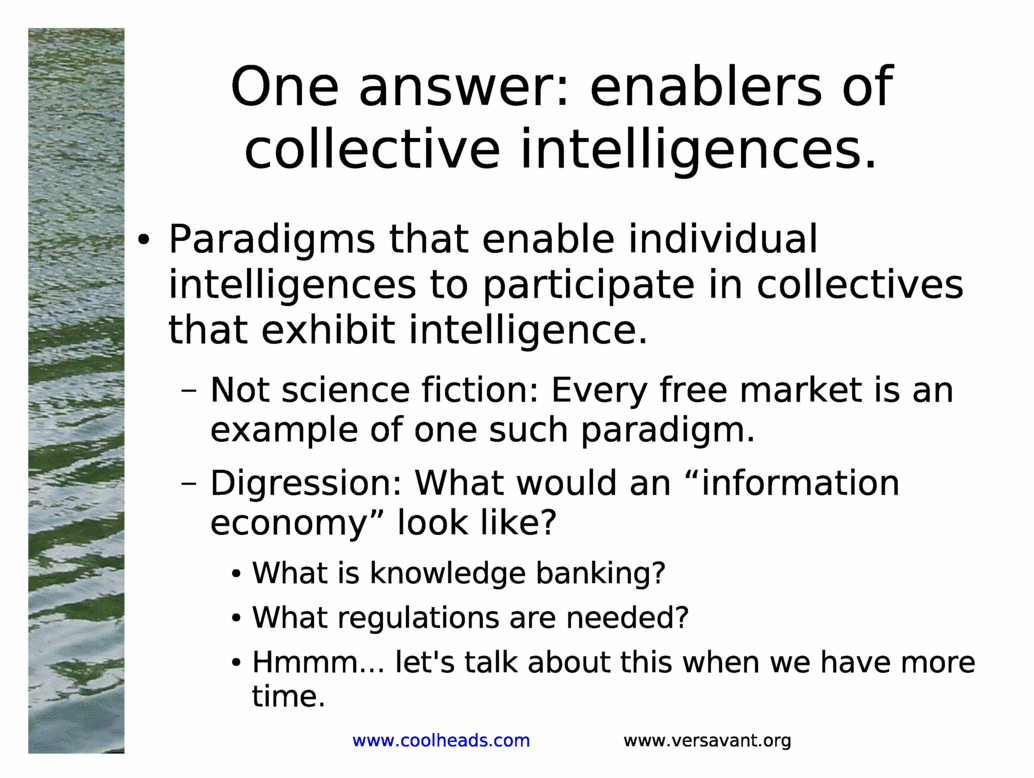
| Previous | SLIDE 9 | Next |
 | ||
Maybe the whole sequence of changing goals of our mythical anti-ignorance warriors was really a series of successive approximations to the implicit meta-goal of allowing groups of human beings to collaborate with each other -- to share each other's memories -- to such an extent that the intelligence of each group exceeds the sum of the intelligences of its members. If so, then we can characterize the formalization and/or standardization of ontologies as efforts motivated by the desire of a collective intelligence to be born, or to function better.
A collective intelligence consists of a significant number of individual intelligences. As a collective, it exhibits self-sustaining behaviors that reflect knowledge of itself and its contexts. It adapts to reality by changing itself and by acting to influence its contexts.
Modern markets are examples of collective intelligences. The economist F.A. Hayek seems to have recognized this when he urged:
"... we should provide the maximum of opportunity
for unknown individuals to learn of facts that we
ourselves are yet unaware of and to make use of
this knowledge in their actions... It is through
the mutually adjusted efforts of many people that
more knowledge is utilized than any one individual
possesses or than it is possible to synthesize
intellectually; and it is through such utilization
of dispersed knowledge that achievements are made
possible greater than any single mind can
foresee."1
1 Hayek, Friedrich A. The Constitution of Liberty,
1960. 1971: University of Chicago Press,
pp. 30-31.
Hayek recognized that knowledge is a peculiar kind of resource that, when exploited, does not get used up. He clearly felt that humanity should maximize its exploitation of knowledge at every opportunity and in every way. He felt that the whole world benefits when economic transactions are negotiated by well-informed participants.
It is tempting to digress at this point and consider what would be the features of a true "knowledge economy", approaching this question from the perspective of optimizing the performance of humanity's various collective intelligences. Regrettably, these urgent questions are beyond the scope of this talk.